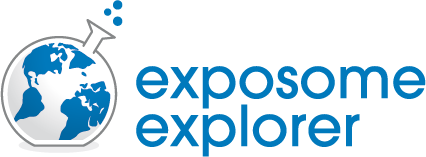What is Exposome-Explorer?
Exposome-Explorer is the first database dedicated to biomarkers of exposure to environmental risk factors for diseases. It aims to provide comprehensive data on all known biomarkers of exposure to dietary factors, pollutants, and contaminants measured in population studies.
Data are systematically and manually collected from the scientific literature. The database includes detailed information on the nature of biomarkers, populations in which biomarkers have been measured, biospecimens analysed and analytical methods used to measure biomarkers, concentrations in biospecimens, correlations with other types of exposure measures, and reproducibility over time.
In September 2019, Exposome-Explorer contained data on 908 dietary and pollutant biomarkers extracted from 812 peer-reviewed publications, with 10 518 concentration values measured in blood, urine, and other biospecimens, 8228 values of correlation between biomarker levels and food intake, and 551 values of biological reproducibility over time. These values are valuable indicators of the quality of a biomarker.
In Exposome-Explorer 2.0, data were added on 185 candidate dietary biomarkers identified in discovery metabolomics studies; these data need to be further validated in new population studies. New data were also added on associations between dietary biomarkers and cancer risk extracted from 313 publications.
In Exposome-Explorer 3.0, data on 462 gut microbial metabolites were added. For each of these metabolites, three types of experimental evidence on their microbial origin were documented: “Reduced by antibiotics”, “Reduced in germ-free animals”, and “Produced by human faecal bacteria”. Detection of these metabolites in human biospecimens is documented, and concentration values are curated.
This information can be used by researchers to compare the performance and field of application of various biomarkers and to identify the specific biomarkers or panels of biomarkers that are most useful for biomonitoring or disease etiology studies.

